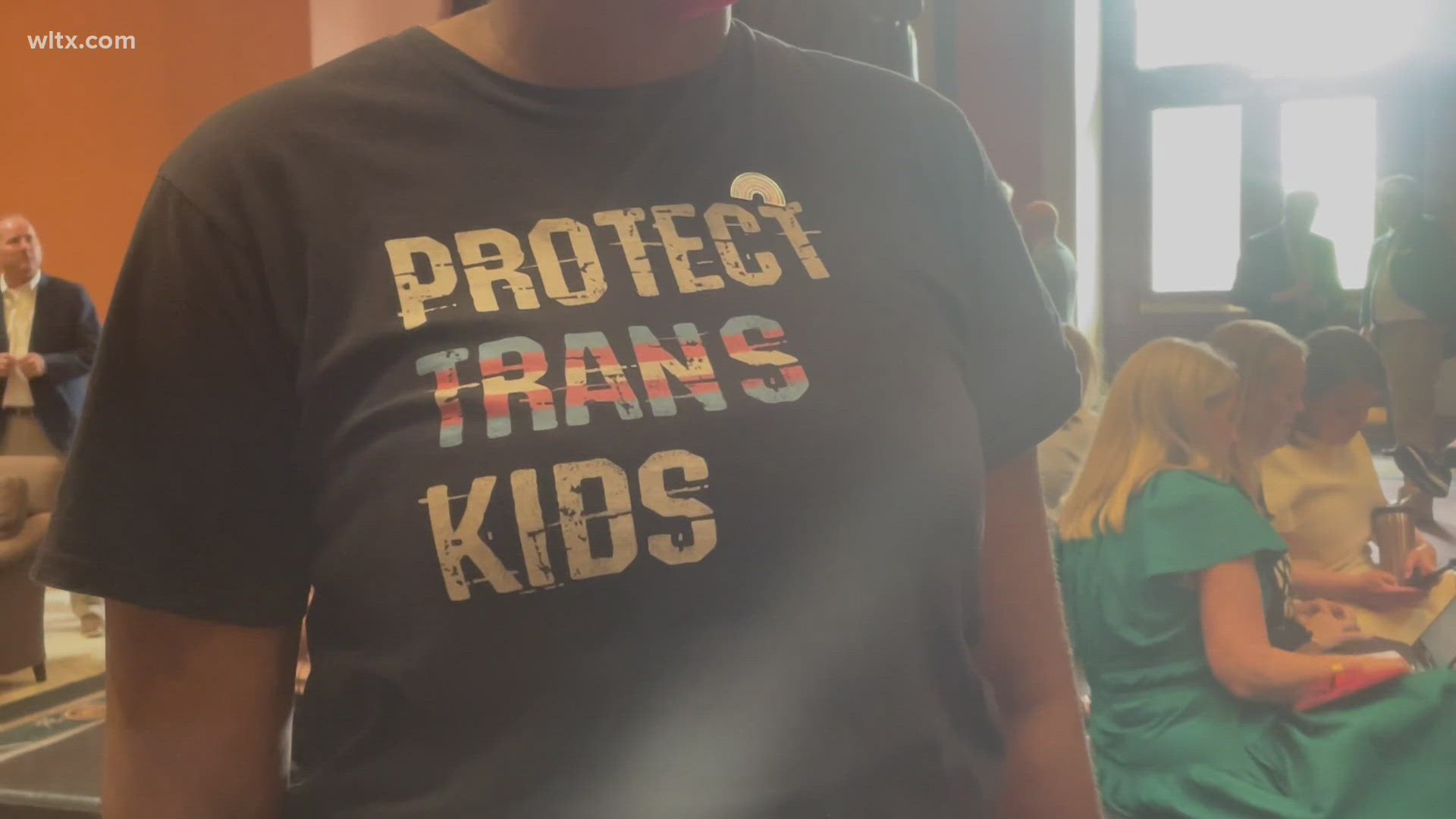COLUMBIA, S.C. — South Carolina Gov. Henry McMaster on Tuesday signed into law a ban on gender-affirming care for transgender minors.
When the ink dried, South Carolina became the 25th state to restrict or ban such care for minors. The governor announced the signing on social media and said he would hold a ceremonial bill signing next week.
The law bars health professionals from performing gender-transition surgeries, prescribing puberty blockers and overseeing hormone treatments for patients under 18.
School principals or vice principals would have to notify parents or guardians if a child wanted to use a name other than their legal one, or a nickname or pronouns that did not match their sex assigned at birth.
The bill was changed in the Senate to allow mental health counselors to talk about banned treatments — and even suggest a place where they are legal. Doctors can also prescribe puberty blockers for some conditions for which they are prescribed such as when a child begins what is called precocious puberty — as young as age 4.
Groups including the Campaign for Southern Equality noted that the law takes effect immediately. The group is gathering resources to help families find any help they might need outside of South Carolina and most of the Southeast, which have similar bans.
“Healthcare is a human right – and it breaks my heart to see lawmakers rip away life-affirming and often life-saving medical care from transgender youth in South Carolina. No one should be forced to leave their home state to access the care that they need and deserve," Uplift Outreach Center Executive Director Raymond Velazquez said in a statement after lawmakers passed the ban.
Earlier this year, McMaster said he supported the proposal to “keep our young people safe and healthy.”
“If they want to make those decisions later when they’re adults, then that’s a different story, but we must protect our young people from irreversible decisions," the governor said.
As the bill advanced in the General Assembly, doctors and parents testified before House and Senate committees that people younger than 18 do not receive gender-transition surgeries in South Carolina and that hormone treatments begin only after extensive consultation with health professionals.
They said the treatments can be lifesaving, allowing young transgender people to live more fulfilling lives. Research has shown that transgender youth and adults are prone to stress, depression and suicidal behavior when forced to live as the sex they were assigned at birth.
Supporters of the bill have cited their own unpublished evidence that puberty blockers increase self-harm and can be irreversible.
Groups that help transgender people promised to keep working even with the new law.
“To all of the young people in South Carolina and their parents who are reading this news and feeling fear for the future, please know: No law can change the fact that you are worthy of dignity, equality, joy, and respect," said Cristina Picozzi, executive director of the Harriet Hancock Center, an LBTQ advocacy nonprofit.

